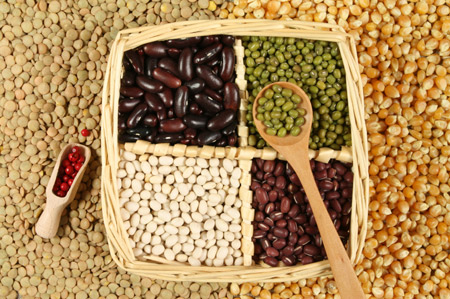Ingredion Introduces High-Protein Pea Ingredient
Category: Trends

(fooddive.com) –
Dive Brief:
- Ingredion launched Vitessence Pulse 1803, its first pea protein isolate in the pulse protein line, according to Dairy Reporter. The ingredient is at least 80% protein and can be used in dairy and meat alternatives, nutrition and sports bars, powdered and ready-to-drink beverages, and snacks and baked goods, the publication said.
- The ingredient also comes in a certified organic version, which Ingredion introduced in March. The Illinois-based company is marketing these new products to manufacturers as having a smooth and creamy texture and fewer raw and green notes than other plant-based solutions.
- Severine Bensa, Ingredion’s regional growth platform leader for marketing, told Dairy Reporter the pea protein isolate has a higher protein content than protein concentrates and helps manufacturers develop products with consumer-preferred sensory qualities and high protein on-pack claims. “It also supports manufacturers looking to make ‘vegetarian’ and ‘vegan’ claims and is naturally gluten-free,” she said.
Dive Insight:
With this pea protein isolate launch, Ingredion is expanding its range of plant-based ingredients, an area where a lot of market growth is occurring. Manufacturers and consumers are looking for products with more protein, fewer allergens, and no gluten, GMOs or animal derivatives. This new line can meet those needs.
Aside from its nutritional benefits and origin story, Ingredion is marketing Vitessence Pulse 1803 by its performance capabilities: “excellent solubility, emulsification, and water and oil-holding capacity.” These are important factors to formulate a wide range of foods and beverages. Including a certified organic option is another shrewd move on the company’s part since some consumers seek out the USDA Organic seal when shopping, and manufacturers want to be sure to meet that demand.
Pea protein has become more popular in recent years, particularly in the meat alternative segment. According to a recent report from PreScouter, it is the most commonly used plant-based protein source in that space. Following pea protein are rice, soy, potato, mung bean, seaweed and vital wheat gluten.
Plant-based products using pea protein include the Beyond Burger from Beyond Foods and the Lightlife Burger from Canada’s Maple Leaf Foods. Lightlife also uses the protein in its ground meat, bratwurst and Italian sausage products. Ripple Foods’ dairy alternatives and Good Catch Foods’ fake tuna also rely on pea protein, as do a variety of protein powders, baked goods and smoothies.
Because of its popularity, there have been concerns about the sustainability of pea protein in many forms. As makers of faux beef, chicken, seafood and dairy substitutes continue to look to legume-based protein for their formulations, the question is whether there will be enough pea protein to fuel this market growth.
The U.S. currently comprises the majority of the North American pea protein market, Research and Markets reported. The market value — estimated at $8.3 million in 2018 — is projected to grow at a compound annual growth rate of 10.5% through 2024. This year, Canada is expected to become production leader for the ingredient worldwide, producing almost a third of the global supply, according to Bloomberg. Thanks to plant-based meat substitutes, global sales of the protein could quadruple by 2025.
Ingredient suppliers are stepping up to meet the demand. Cargill makes an organic and non-GMO pea protein ingredient line called Puris with 80% protein, while DuPont Nutrition & Health has introduced non-GMO Trupro Nuggets containing 70% pea protein. And Roquette is on track to open the largest pea-protein plant in the world this year in Canada.
It’s probable the market will see more such products in the near future. In 2018, Ingredion boosted spending by 14% — to $349 million — to move more into plant-based protein and sugar reduction innovations. It also invested $140 million in manufacturing facilities in Nebraska and Saskatchewan to produce protein isolates from peas and other pulse-based flours and concentrates.
The Nebraska plant will enhance the Vitessence Pulse protein isolate line, while the Saskatchewan project is a joint venture with Verdient Foods and PIC Investment Group. Ingredion said the Canadian facility is being upgraded to produce pulse-based protein concentrates and flours from peas, lentils and fava beans for human food applications, so it’s likely the company will be introducing additional plant-based ingredients before long.

